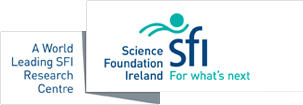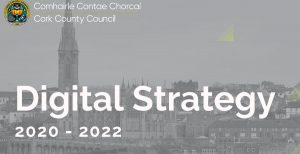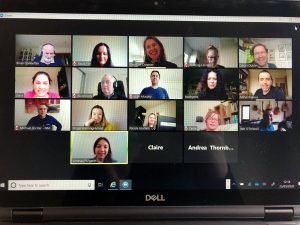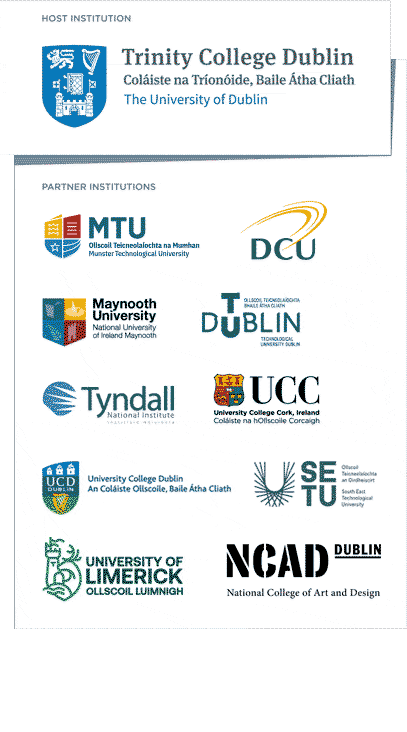
CONNECT’s Vanessa Pulgarin is coordinator of the Cork Smart Gateway. She tells us more about the initiative, which is co-funded via our Enable smart cities research programme.
So, what is the Cork Smart Gateway?
The Cork Smart Gateway is an initiative established in 2016 by Cork’s local authorities and academic partners – Munster Technological University, Tyndall National Institute and University College Cork – to support the development of Cork as a smart, sustainable, and inclusive region. Technology, data, and digital tools are a key focus for the Gateway’s projects.
In particular, the Cork Smart Gateway aims to develop an innovation ecosystem which increases economic activity, provides better public services, promotes collaboration and engagement, and enhances the quality of life for all who live, work, and visit the county and city. The Smart Gateway also supports citizen engagement and collaborations by actively participating in international and national initiatives.
What excites you about it?
While we have faced some challenges and delays because of COVID-19, the pandemic has also been an “eye-opener” for many people. I think there is a greater realisation now of the critical importance of connectivity and digital tools. As a result, it is very exciting to notice people’s growing interest in technologies such as AI, IoT and Cybersecurity and the effort made to better understand and discuss their potential and how they can be applied to different businesses areas or city services.
So, I am excited by the opportunities this will lead to.
What challenges are emerging?
The HSE ransomware attack demonstrated the importance of cybersecurity for organisations and businesses and has also prompted new conversations about the cyber vulnerabilities we face as individuals.
Our most recent webinar was on “The importance of Cyber Security in SMEs”. It was our best attended event and had the strongest engagement from the audience.
But we should not wait for a crisis to focus on an issue, so we have an ongoing programme in the Smart Gateway to foster digital inclusion, enabling individuals and communities as a whole to access digital literacy.
Three years from now, what will be different in Cork because of the Smart Gateway?
The digital strategies of Cork’s local authorities are to be delivered within three years and the Smart Gateway will continue to support those priorities. (See Cork City’s Digital Strategy and Cork County’s Digital Strategy)
I would love to see a range of initiatives which would allow citizens to deepen their understanding of emerging digital technologies, while also being able to see concrete examples of how these technologies can transform services and businesses.
As local communities emerge from the pandemic and smart projects regain momentum, I think there will be a renewed focus on problem solving and I hope that this will result in a smarter Cork and smarter services for citizens.
Do you have any message for companies interested in learning more?
Cork is home to a fantastic research community, which has extensive experience of working with industry partners to co-design research projects. If a company is interested in exploring a challenge, the first step is the contact us and we can connect them to an appropriate research team, and discuss funding mechanisms.
The Cork Smart Gateway is supported by CONNECT – the world leading Science Foundation Ireland Research Centre for Future Networks and Communications – and its team of researchers in UCC, MTU and Tyndall are working on several topics relevant to smart cities. CONNECT also has a dedicated research programme, ENABLE, which focuses on smart buildings, smart mobility, and smart networks. ENABLE includes two other SFI research centres: Insight and Lero, so there is tremendous expertise available.
This is an exciting area, and my message to companies is that there are many research funders supporting this kind of work: SFI, Enterprise Ireland, Irish Research Council, Health Research Board, European Commission and others.
Are there opportunities for the public to be involved?
Active citizen participation is an important part of developing a successful Smart Cork. The local authorities Public Participation Networks allow us to get closer to the citizens’ ideas and recommendations. This is a key element to plan and deliver projects aimed ultimately to address the needs of communities.
The Cork Smart Gateway has delivered several webinars focused on emerging digital technologies with the objective of raising awareness of their potential and informing the public on their use. Anyone is welcome to join us and suggest forthcoming webinar themes.
We are always open to meet and greet stakeholders from different organisations and backgrounds, and discuss the opportunities that technology brings to Cork as a smart region.
And what about you: what’s your background?
I did my MSc in International Public Policy and Diplomacy in University College Cork and have worked with a broad range of local, national and international organisations to develop cities and communities.
I started my career at a local government and this enabled me to work with policy makers as well as the beneficiaries of local projects. Then, from an international organisation I was able to support the development of regional climate adaption actions and worked with local and regional governments around the world representing their voice at working groups and high-level events.
My interest in local government and communities continued to grow as I realised how important and rewarding is to be close to citizens and jointly search for solutions. In this sense, I also enjoy being part of multiple stakeholders groups where I can contribute with ideas, exchange information, argue my positions on any issue and of course, learn from others.
What attracted you to working on this project?
The Smart Gateway Steering Committee has members from different backgrounds but all of them share a keen interest to see Cork as a smart region.
Cork is a fantastic region with urban and rural areas and great engagement from the city and county local authorities. This means the Smart Gateway can inform the decision-making processes that pave the way to a more sustainable and liveable Cork, attracting talent, investment, and business.
What does the future hold for smart city developments?
I think a people-centred approach will increasingly be a focus for smart cities. We need to protect people’s rights and interests, ensure the safety and privacy of their data and provide upskilling opportunities. The European Commission is determined to make this Europe’s “Digital Decade”. So, projects of this nature are being supported.
I also think we will see smart city developments as a key contributor to efforts to achieve carbon neutrality by 2050.
For these purposes, digital twin cities are gaining ground and could help monitor, diagnose, and provide predictions to optimise asset performance.
Aside from technological advances, the common factor in any successful smart city development will continue to be the commitment and willingness of companies, residents, local authorities, and academia to discuss the region’s challenges and jointly find innovative and suitable solutions.
CONNECT is the world leading Science Foundation Ireland Research Centre for Future Networks and Communications. CONNECT is funded under the Science Foundation Ireland Research Centres Programme and is co-funded under the European Regional Development Fund. We engage with over 35 companies including large multinationals, SMEs and start-ups. CONNECT brings together world-class expertise from ten Irish academic institutes to create a one-stop-shop for telecommunications research, development and innovation.
ENABLEIn Focus




